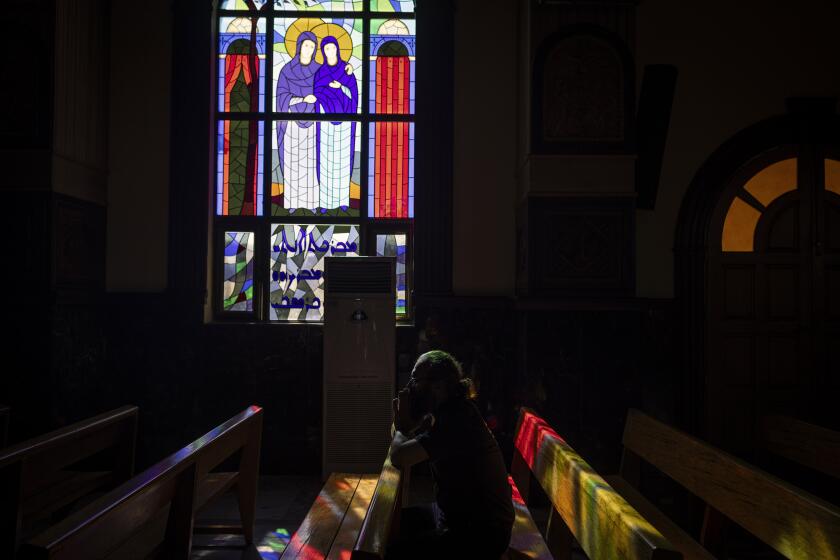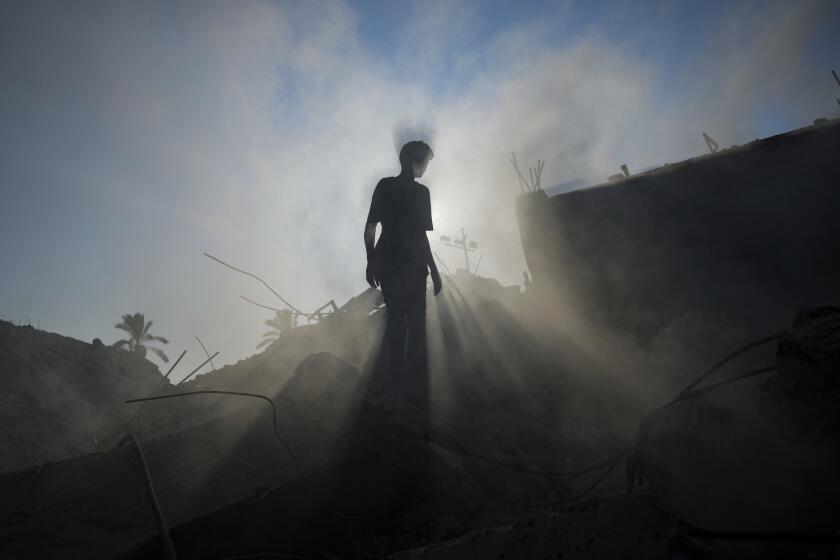Strike in Israeli-controlled Golan Heights kills at least 11. Hezbollah denies a role
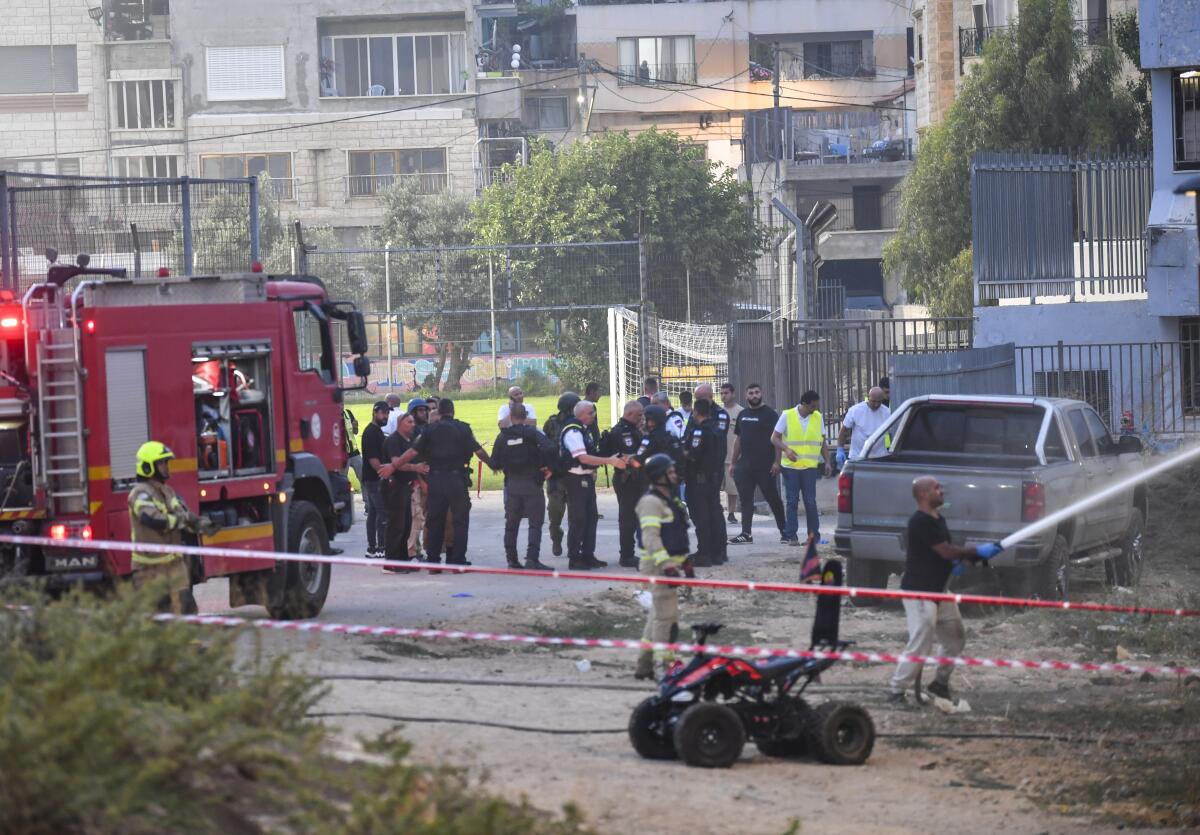
TEL AVIV — A rocket strike Saturday at a soccer field killed at least 11 children and teens, Israeli authorities said, in the deadliest strike on an Israeli target along the country’s northern border since the fighting with Hezbollah erupted. It risked unleashing a broader regional war.
Israel blamed the Lebanese militant group Hezbollah for the strike in Majdal Shams, in the Israeli-controlled Golan Heights, but Hezbollah rushed to deny any role. Israeli Prime Minister Benjamin Netanyahu warned that Hezbollah “will pay a heavy price for this attack, one that it has not paid so far.”
The Israeli military’s chief spokesman, Rear Adm. Daniel Hagari, called it the deadliest attack on Israeli civilians since the Hamas attack on Oct. 7 that sparked the war in Gaza. He said 20 others were wounded.
“There is no doubt that Hezbollah has crossed all the red lines here, and the response will reflect that,” Israeli Foreign Minister Israel Katz told Israeli Channel 12. “We are nearing the moment in which we face an all-out war.”
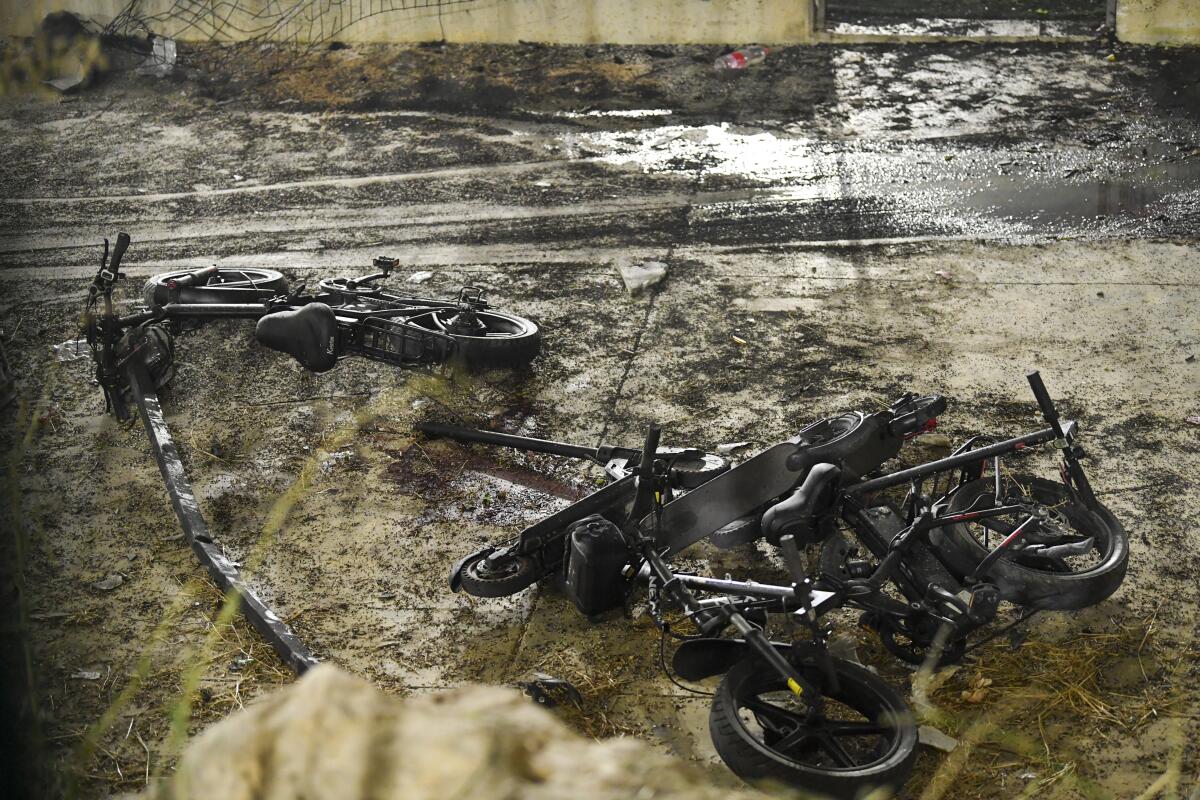
Hezbollah chief spokesman Mohammed Afif told the Associated Press that the group “categorically denies carrying out an attack on Majdal Shams.” It is unusual for Hezbollah to deny an attack.
The strike at the soccer field, just before sunset, followed earlier cross-border violence Saturday, when Hezbollah said three of its fighters were killed, without specifying where. Israel’s military said its air force targeted a Hezbollah arms depot on the border village of Kfar Kila, Lebanon, adding that militants were inside at the time.
Hezbollah said its fighters carried out nine attacks using rockets and explosive drones against Israeli military posts, the last of which targeted the army command of the Haramoun Brigade in Maaleh Golani with Katyusha rockets. It said it was in response to Israeli airstrikes on villages in southern Lebanon.
Israel has assassinated two dozen Hezbollah commanders in Lebanon since last fall amid an intelligence war employing cellphones, drones and fake rocks.
The office of Netanyahu, who was on a visit to the United States, said he would cut short his trip by several hours, without specifying when he would return. It said he would convene the security Cabinet after arriving.
Far-right members of Netanyahu’s government called for a harsh response against Hezbollah. But an all-out war with a militant group with far superior firepower to Hamas would be trying for Israel’s military after nearly 10 months of fighting in Gaza.
Video aired on Israeli Channel 12 showed a large blast in one of the valleys in Majdal Shams, a predominantly Druze town that Israel captured from Syria in the 1967 Mideast war and annexed in 1981. Some Druze have Israeli citizenship. Many still have sympathies for Syria and rejected Israeli annexation, but their ties with Israeli society have grown over the years.
Video showed paramedics rushing stretchers off the soccer field toward waiting ambulances.
Ha’il Mahmoud, a resident of Majdal Shams, told Channel 12 that children were playing soccer when the rocket hit the field. He said a siren was heard seconds before the rocket hit, but there was no time to take shelter.
Christian areas scattered across Hezbollah-dominated southern Lebanon find themselves on the front line of a fight that few see as theirs.
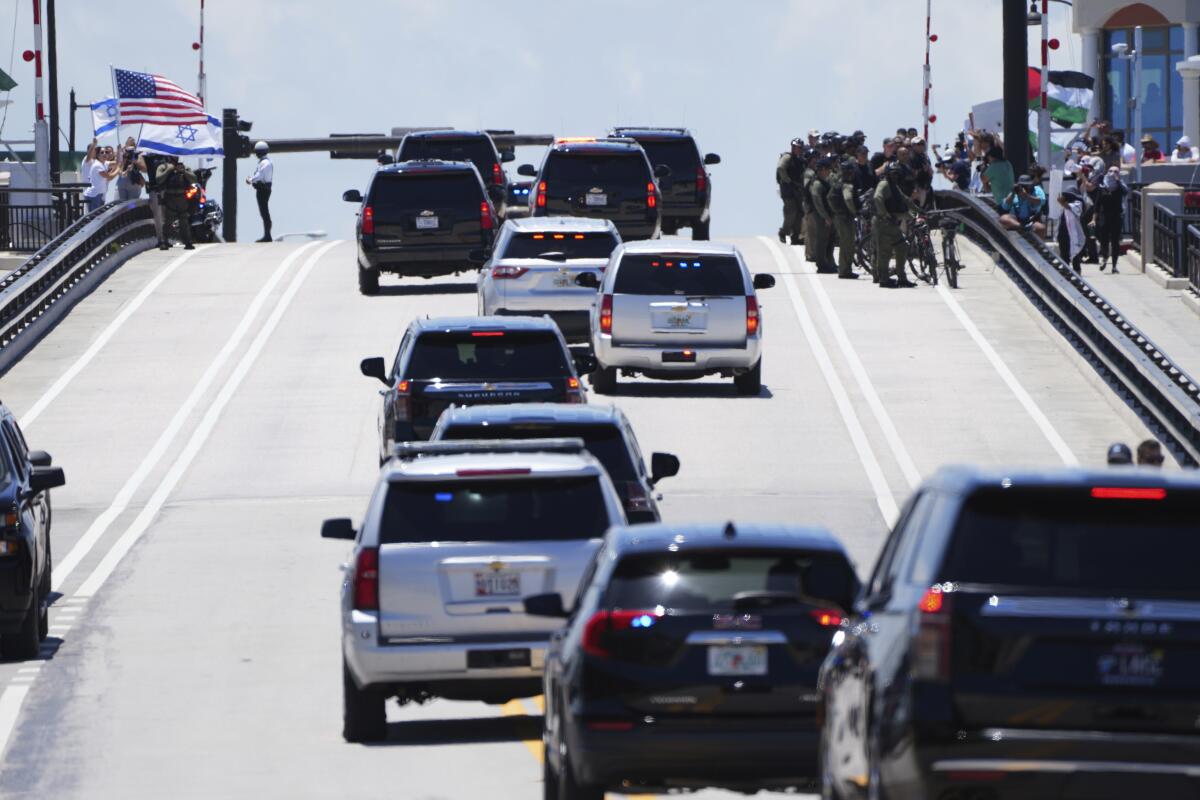
Jihan Sfadi, the principal of an elementary school, told Channel 12 that five students were among the dead: “The situation here is very difficult. Parents are crying; people are screaming outside. No one can digest what has happened.”
Israel’s military said its analysis showed that the rocket was launched from an area north of the village of Shebaa in southern Lebanon.
The White House National Security Council said in a statement that the U.S. “will continue to support efforts to end these terrible attacks along the Blue Line, which must be a top priority. Our support for Israel’s security is iron-clad and unwavering against all Iranian-backed terrorist groups, including Lebanese Hezbollah.” The Blue Line is a United Nations-established demarcation between Israel, Lebanon and the long-disputed Golan Heights.
Lebanon’s government, in a statement that didn’t mention Majdal Shams, urged “immediate cessation of hostilities on all fronts” and condemned all attacks on civilians.
Israel and Hezbollah have been trading fire since Oct. 8, a day after Hamas militants stormed into southern Israel. In recent weeks, the exchange of fire along the Lebanon-Israel border has intensified, with Israeli airstrikes and rocket and drone attacks by Hezbollah striking deeper and farther away from the border.
Majdal Shams had not been among the border communities ordered to evacuate as tensions rose, Israel’s military said, without saying why. The town doesn’t sit directly on the border with Lebanon.
Officials from countries including the United States and France have visited Lebanon to try to ease the tensions but failed to make progress. Hezbollah has refused to cease firing as long as Israel’s offensive in the Gaza Strip continues. Israel and Hezbollah fought an inconclusive war in 2006.
Saturday’s violence comes as Israel and Hamas are weighing a cease-fire proposal that would wind down the nearly 10-month war and free the roughly 110 hostages who remain captive in Gaza. Hamas’ surprise attack on Oct. 7 killed some 1,200 people and took 250 others hostage. Israel launched an offensive that has killed more than 39,000 people, according to local health authorities, displaced more than 80% of the territory’s people and triggered a humanitarian disaster in Gaza.
Israeli airstrikes hit a school sheltering displaced Palestinians in central Gaza, killing dozens. Military orders evacuation from a humanitarian zone.
Since early October, Israeli airstrikes in Lebanon have killed more than 450 people, mostly Hezbollah members, but also about 90 civilians and noncombatants. On the Israeli side, 21 soldiers and 13 civilians had been killed before Saturday.
Associated Press writer Goldenberg reported from Tel Aviv and Mroue reported from Beirut.
More to Read
Sign up for Essential California
The most important California stories and recommendations in your inbox every morning.
You may occasionally receive promotional content from the Los Angeles Times.

